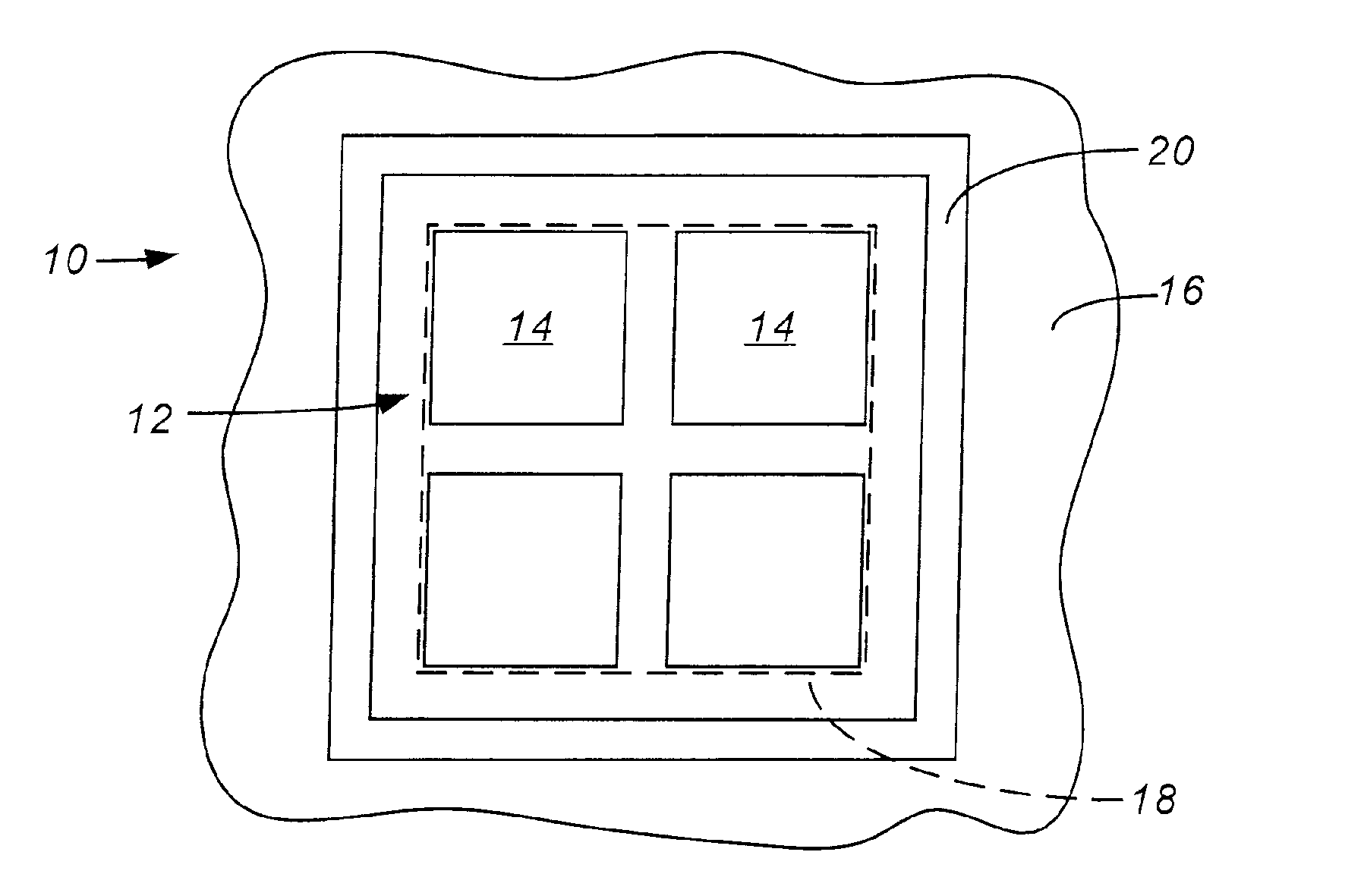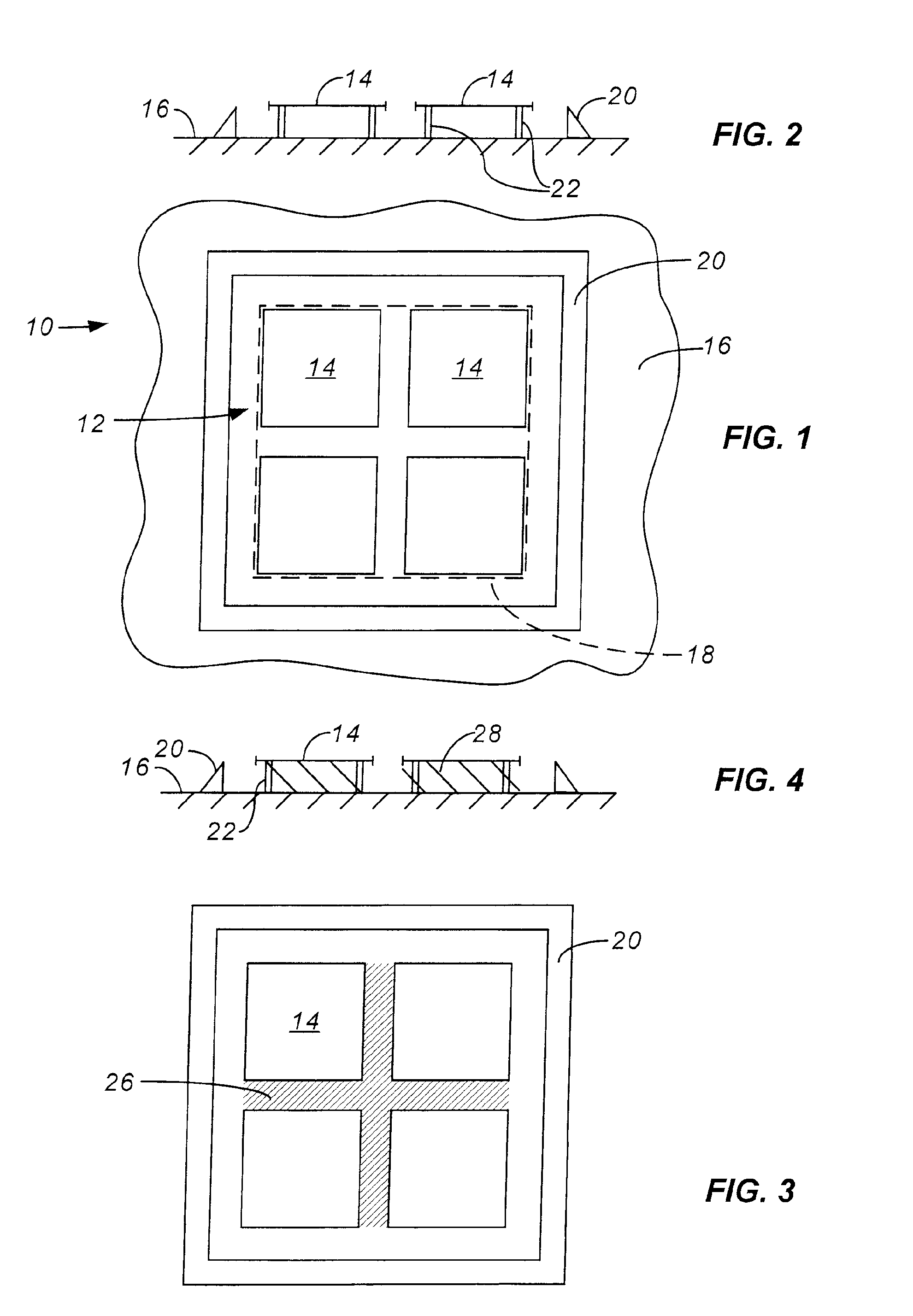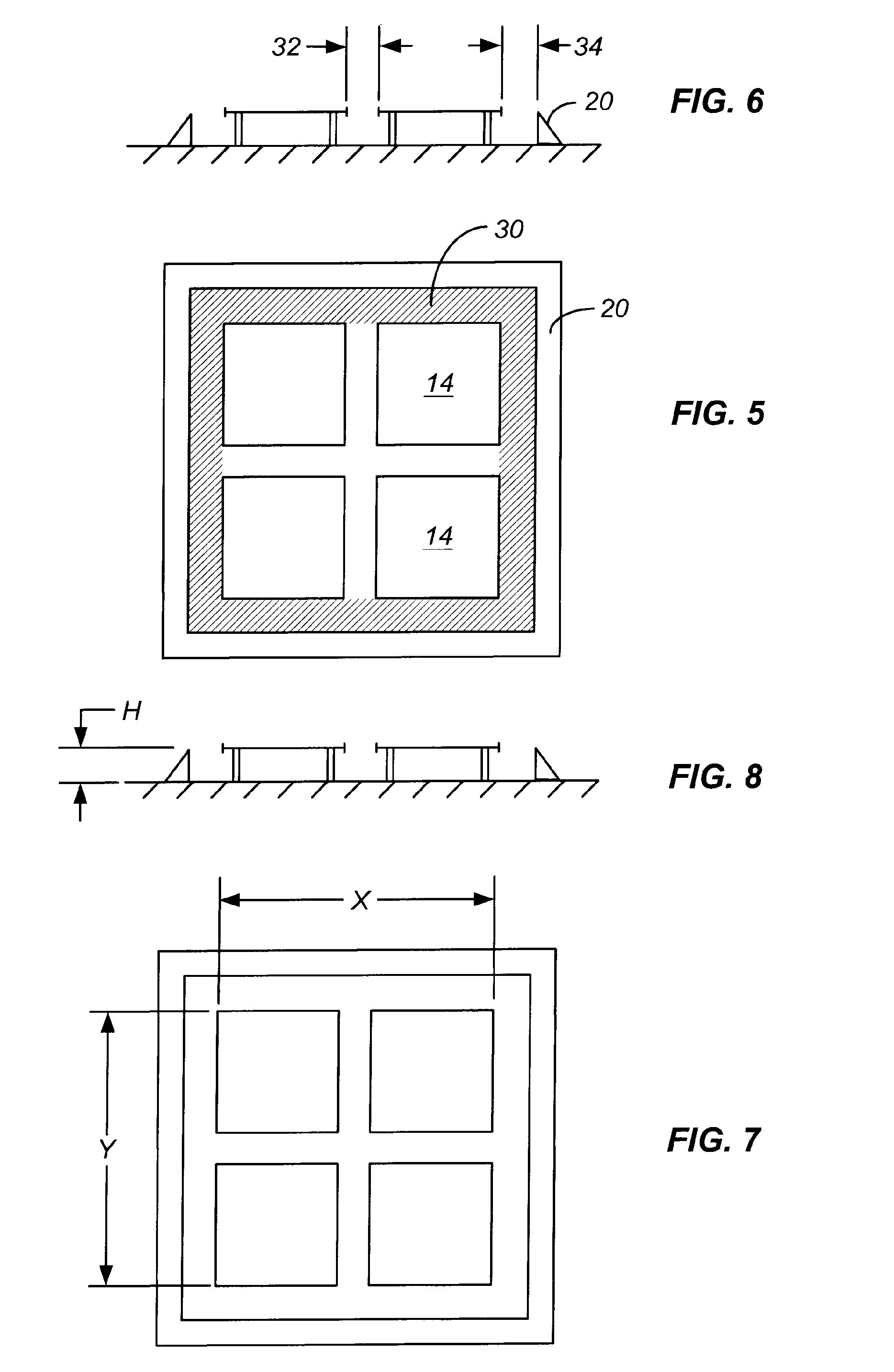PV Wind Performance Enhancing Methods
a technology of enhancing methods and wind power, which is applied in the safety of solar heat collectors, lighting and heating equipment, instruments, etc., can solve the problems of easy installation of light-weight pv assemblies, achieve enhanced pressure equalization between upper and lower surfaces of pv modules of the array of pv modules, and reduce uplift forces
- Summary
- Abstract
- Description
- Claims
- Application Information
AI Technical Summary
Benefits of technology
Problems solved by technology
Method used
Image
Examples
Embodiment Construction
[0053]FIGS. 1 and 2 are top plan and side elevational views of a PV installation 10, installation 10 including an array 12 of PV modules 14 supported by a support surface 16, typically the roof of a building. Array 12 of PV modules 14 define a circumferentially closed perimeter 18. Installation 10 also includes a perimeter air deflector 20 surrounding and spaced apart from perimeter 18 and PV modules supports 22 supporting PV modules 14 above a support surface 16. The general construction of PV installation 10 may be conventional, such as disclosed in one or more of the above-referenced patents with exemplary possible modifications discussed below. For example, PV modules 14 are preferably interconnected to one another to enhance resistance to wind uplift forces. The number, shape, orientation and arrangement of PV modules 14, as well as perimeter air deflector 20 and supports 22, may be changed from that illustrated, PV installation 10 being a simplified exemplary installation used...
PUM
 Login to View More
Login to View More Abstract
Description
Claims
Application Information
 Login to View More
Login to View More - R&D
- Intellectual Property
- Life Sciences
- Materials
- Tech Scout
- Unparalleled Data Quality
- Higher Quality Content
- 60% Fewer Hallucinations
Browse by: Latest US Patents, China's latest patents, Technical Efficacy Thesaurus, Application Domain, Technology Topic, Popular Technical Reports.
© 2025 PatSnap. All rights reserved.Legal|Privacy policy|Modern Slavery Act Transparency Statement|Sitemap|About US| Contact US: help@patsnap.com



